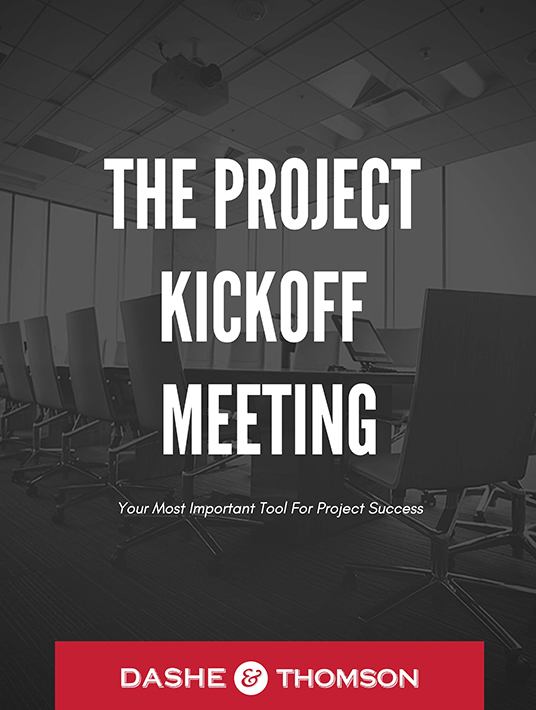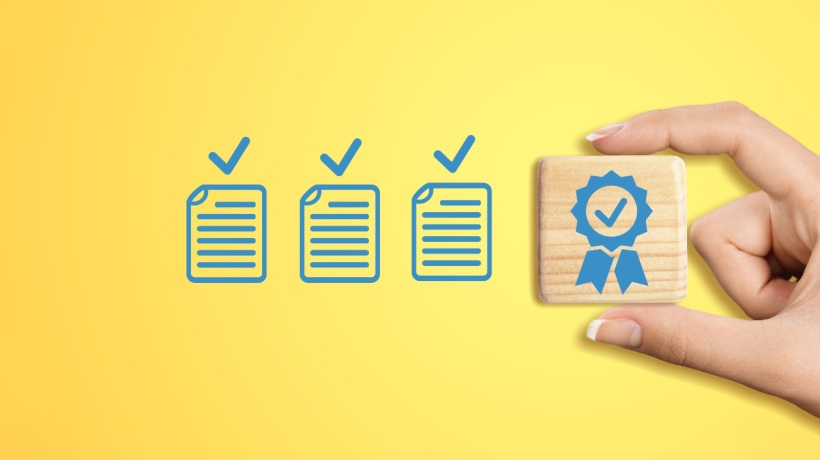eLearning Project Kickoff Meeting: The Instructional Designer's Guide
The importance of a strong kickoff to a training project can’t be understated. Not only does the project kickoff meeting define the roadmap, set expectations for your stakeholders, and clarify each team member’s roles, it’s also an opportunity for the team to forge a positive and enthusiastic working relationship that builds a solid foundation for collaboration on future projects. Sure, the L&D manager has a primary role in conducting a great project kickoff meeting. But, what can the Instructional Designer do to increase the chances of project success (without an Instructional Designer's Guide?).

3 Things The Instructional Designer Should Bring To The Table
1. Expertise
Other stakeholders almost never have Instructional Design expertise. The Instructional Designer can help them understand important concepts, such as:
- How to define effective learning objectives, and use them to develop learning content and evaluation techniques;
- When to focus learning on what the learner should do, supported by information they need to know;
- How to realistically scope a learning module; and
- How to help learners retain what they’ve learned.
A caveat: Don’t derail the kickoff meeting by getting into these issues in detail; that will happen during the design phase of the project. But the kickoff is a good time to address any initial concerns when stakeholders are defining their needs, or to encourage the stakeholders to consider best practices that will improve the quality of the product.
2. Creative Ideas
Build in time to discuss creative direction. For example, if the learning solution at hand is an eLearning module, illustrate some ideas by providing examples of functionality or design. This helps stakeholders envision ways to present content in a manner that engages the learner and improves retention.
If possible, ask to see some content related to the training you’ll be developing. Reviewing the content in advance will probably spark some initial ideas you can take back to the group. This not only can create some enthusiasm and momentum during the meeting; it also shows that you’ve prepared for the meeting and have the intent to make their project successful.
3. A Listening Ear
This is the most important tool the ID can bring to this meeting. You need to be very aware of your audience during kickoff. Listen to what they’re saying; but also, get a sense of how the team works together. Is there someone clearly in charge? What are the attitudes toward this project? Are there team members you need to “win over” or is everyone on the same page? Are there any conflicts among the team regarding what their needs are, or the direction they would like to take?
Personally, I was once in a kickoff meeting during which I failed (epically) to do this. I came prepared to discuss content and direction. The problem was, the most powerful voices in the room were managers who were more interested in the strategy of the training program, not the details. At one point, one of the managers cut me off, saying “I’m not interested in the details.” Humiliating? Yes. But I learned a lot from the experience. In my excitement to talk about how to develop the training, I failed to evaluate my audience and meet their needs. Fortunately, my colleague was well-prepared to discuss strategic direction, and we had worked with this team on previous projects, so my mistake didn’t raise too many red flags.
In a nutshell, the kickoff meeting should be used to find out how to make your audience happy. Some stakeholders are easier to “read” than others. Take this opportunity to get to know them, their needs, and their motivations. And then, work hard to deliver on those needs, both during the kickoff meeting and beyond.
3 Things The Instructional Designer Needs To Take Away
1. A Defined Audience
By the end of the project kickoff, you should have a clear idea of your audience. To whom is this training directed? Once you know this, keep them in mind. Get to know them. What are their needs and concerns? Why do they need this training? What’s in it for them?
Conversely, what don’t they need? Because you’ll probably have well-meaning Subject Matter Experts that want to train them on everything, but that doesn’t fit into the course objectives.
Answer these questions, and then develop content that addresses those needs.
2. Contact Information For Your SMEs
By the end of the kickoff meeting, you should have your SMEs’ contact information so you can jump into action. Ideally, you could reach out and set up your first content gathering session within 24 hours of having met them at the kickoff.
3. A Plan For Accessing Relevant Documentation
Everyone should leave the kickoff meeting with a plan for how you, the ID, will access all relevant background documentation. That could mean gaining access to an internal file-sharing site or wiki, or they might send materials via email.
Speaking of relevant documentation, there are two easy ways to dominate as an ID:
- Don’t forget to ask for a style guide. Most bigger companies have one, and it will save you a lot of heartache if you start out using the correct, company-approved terminology and color schemes.
- Don’t forget to ask for their 508 compliance requirements. This is especially important for government agencies, but many organizations are concerned about making their workplace friendly for disabled employees and customers.
One Thing The Instructional Designer Would LOVE To Take Away
The one thing I hope to take away from every kickoff meeting is a sense of connection to the stakeholders. We call this “getting on the same side of the table.” It’s more elusive than you might think. The personalities involved and the corporate culture sometimes pose insurmountable barriers.
But when you make that connection, magic happens! The project runs more smoothly. Fewer problems arise, and if they do, they’re easier to resolve. The team has fun! And the finished product is usually better than it would have been had the relationship been less positive. In short, by getting on the same team, you create a win-win situation for stakeholders, the end-user, and for you. Delve into the subject matter by downloading the eBook Project Kickoff Meeting: Your Most Important Tool For Project Success. Here you will obtain valuable information and guidance in order to start your projects successfully, so you can finish them with debriefs that benefit everyone.









